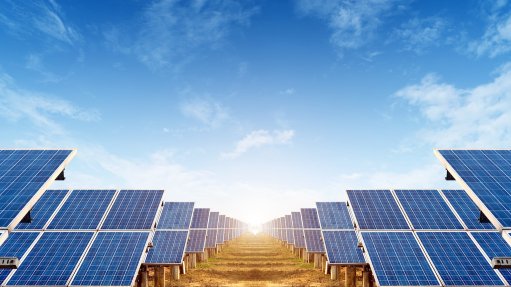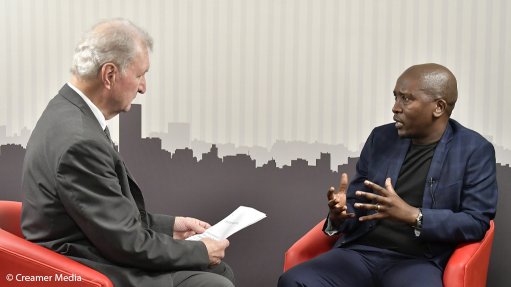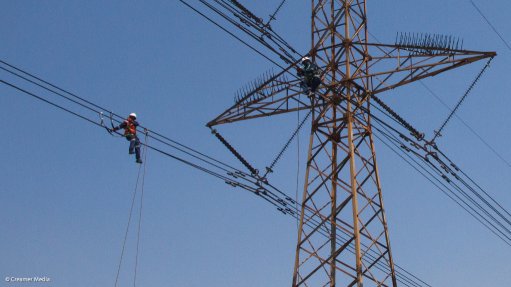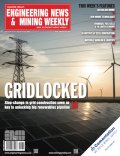The manufacturing sector pays a high price for persistently high levels of load shedding
This article has been supplied.
By Dennis Phillips, National Sales Manager at PFERD-South Africa
South Africa’s manufacturing sector, which contributes around 14% to GDP, is still struggling to recover to pre-pandemic levels amidst persistently high levels of load shedding and failing infrastructure. Both these issues were addressed in President Ramaphosa’s recent annual State of the Nation Address (Sona).
It has become an increasingly challenging operating environment locally for manufacturers. In addition to energy insecurity, they are also having to contend with port inefficiencies and softer global demand for export-oriented manufacturers. Subdued local economic growth is also likely to slow further.
Stats SA reported last month that manufacturing production decreased by 4.7% in December 2022 compared to December 2021. Manufacturers have cited power supply disruptions as the most significant cause of declining manufacturing activity.
PwC’s recently published economic outlook says load shedding in 2022 reduced South Africa’s real GDP growth by up to 5% despite businesses and members of the public mitigating against the impact of power cuts. In 2022, South Africa imported more than R5bn worth of solar panels which PwC estimates provides an additional 2,000 MW of generating capacity, potentially saving the country from an additional stage of load shedding at any given time.
Absa’s Manufacturing Survey for the fourth quarter of 2022 confirmed that the challenging operating environment has resulted in low business confidence levels. The bank’s Purchasing Manager’s Index, which is compiled by the Bureau for Economic Research in partnership with Absa, fell from 53 in January to to 48.8 in February. The fall is attributed to record levels of stage 6 load shedding which negatively impacted factories.
Increased production costs are just one of the reasons for poor business confidence. Although many businesses have implemented strategies to mitigate against the risk of load shedding, including solar power solutions and generators, higher fuel costs from early February, particularly for businesses using diesel generators, will put additional pressure on production costs.
The automotive sector, one of South Africa’s key industrial sectors, is typically one of the shining stars in the manufacturing sector. However, according to a survey conducted last month by the National Association of Automotive Component and Allied Manufacturers (Naacam), persistent and prolonged bouts of load shedding have had a negative impact on monthly production and turnover amongst its manufacturing members. The automotive sector accounted for more than 4% of South Africa’s GDP in 2022.
Naacam says that stage 6 load shedding, characterised by up to 12 hours a day of no electricity, will have an impact on the automotive sector’s economic contribution both in the short and long-term, given that many of its members don’t have the money to implement measures that limit the impact of load shedding.
The Naacam survey revealed that 75% of respondents said new business opportunities were at risk because of prolonged load shedding while more than 58% said they had placed their workforce on short time as a result of production interruptions. More than a fifth of respondents said they had either started cutting jobs or had to put a halt on new hires.
During his Sona address in February President Ramaphosa revealed that more diesel would be procured for Eskom to power up its emergency generation fleet. He also announced tax incentive schemes to encourage taxpayers to install rooftop solar panels and businesses to invest in renewable energy solutions.
Globally, the World Steel Association expects that demand for steel will start recovering this year. This, combined with the new local tax incentive for rooftop solar panels, bodes well for the local steel industry.
Comments
Press Office
Announcements
What's On
Subscribe to improve your user experience...
Option 1 (equivalent of R125 a month):
Receive a weekly copy of Creamer Media's Engineering News & Mining Weekly magazine
(print copy for those in South Africa and e-magazine for those outside of South Africa)
Receive daily email newsletters
Access to full search results
Access archive of magazine back copies
Access to Projects in Progress
Access to ONE Research Report of your choice in PDF format
Option 2 (equivalent of R375 a month):
All benefits from Option 1
PLUS
Access to Creamer Media's Research Channel Africa for ALL Research Reports, in PDF format, on various industrial and mining sectors
including Electricity; Water; Energy Transition; Hydrogen; Roads, Rail and Ports; Coal; Gold; Platinum; Battery Metals; etc.
Already a subscriber?
Forgotten your password?
Receive weekly copy of Creamer Media's Engineering News & Mining Weekly magazine (print copy for those in South Africa and e-magazine for those outside of South Africa)
➕
Recieve daily email newsletters
➕
Access to full search results
➕
Access archive of magazine back copies
➕
Access to Projects in Progress
➕
Access to ONE Research Report of your choice in PDF format
RESEARCH CHANNEL AFRICA
R4500 (equivalent of R375 a month)
SUBSCRIBEAll benefits from Option 1
➕
Access to Creamer Media's Research Channel Africa for ALL Research Reports on various industrial and mining sectors, in PDF format, including on:
Electricity
➕
Water
➕
Energy Transition
➕
Hydrogen
➕
Roads, Rail and Ports
➕
Coal
➕
Gold
➕
Platinum
➕
Battery Metals
➕
etc.
Receive all benefits from Option 1 or Option 2 delivered to numerous people at your company
➕
Multiple User names and Passwords for simultaneous log-ins
➕
Intranet integration access to all in your organisation


















